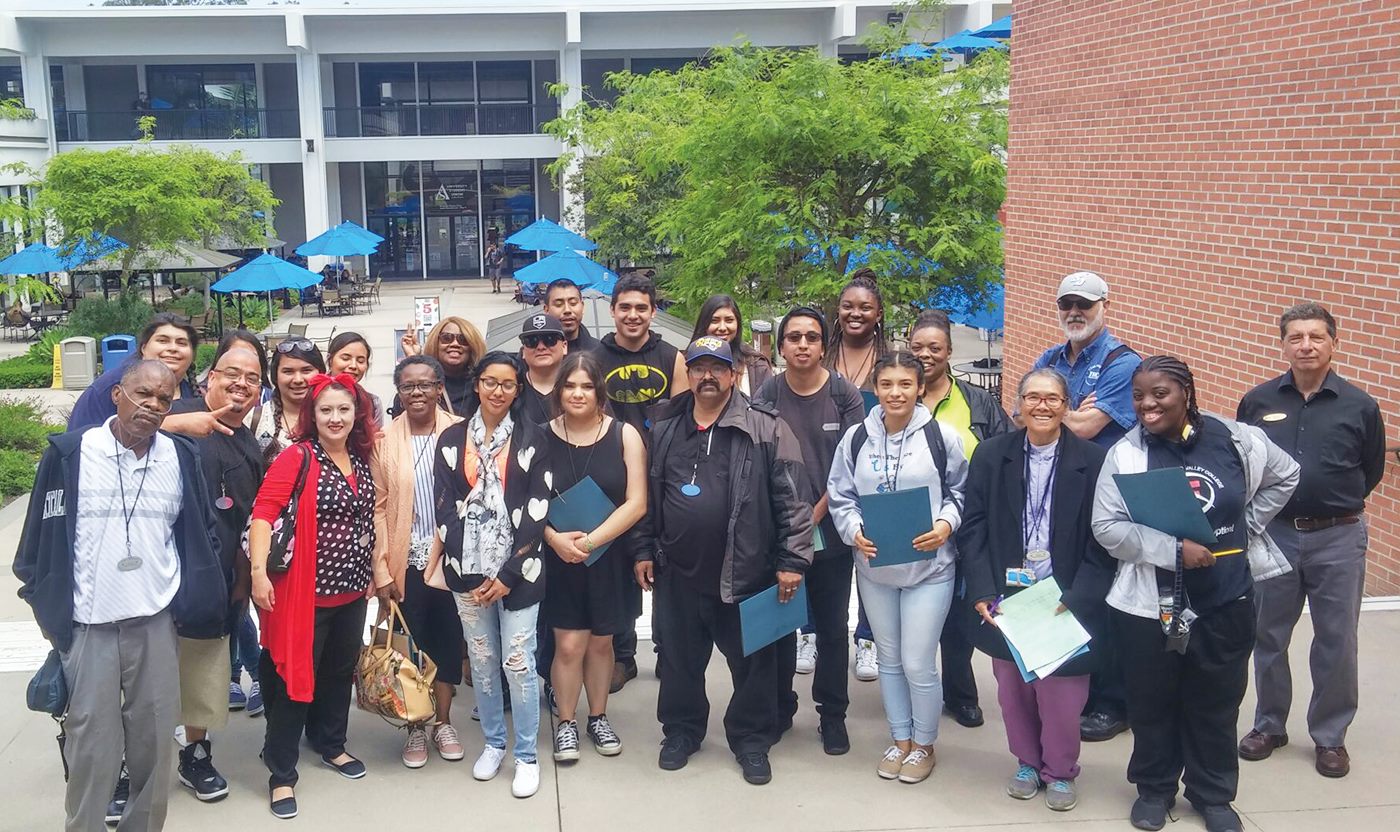STAR Program Celebrates 25 Years
 Deanne Rabon thinks back to the many students over the years who have returned to
share their stories about the personalized help they received at San Bernardino Valley
College.
Deanne Rabon thinks back to the many students over the years who have returned to
share their stories about the personalized help they received at San Bernardino Valley
College.
She never tires of catching up with students who just stop in to reminisce and say
thank you. “You don't really realize how much you help a person sometimes,” she said.
“You're just doing your day. They'll come back and say, you know I'm finishing my
master's degree, and you're like – wow.”
It's a big step away from how they first walk into the STAR program door. Often, they're
confused, and don't know where to turn. One of her students had been in prison for
ten years, and came in asking question after question. He spoke of not having a support
system at home with friends and family.
“There's this energy that says, it's this or nothing. I just sat him down because
sometimes you can tell if you're not the one to help them, then they're going to walk
away,” she said.
She gave him the information he needed, and pointed him in the right direction. He
signed up with STAR, and today is doing well. He's active on campus, in the community,
and in his church. The key, she said, is understanding the needs of the students,
and being able to relate to the obstacles they face.
“We're sitting here with master's degrees and doctorates. The students we serve are
trying to be where we are. We can't lose sight of that,” said Rabon, who started as
an adjunct counselor in 2002, and took over the STAR (Success Through Achievement
and Retention) program as full-time coordinator in 2007.
Through the program, which serves about 200 students during the school year, there
is a strong circle of familiarity. Counselors get to know the students, offering tools
and resources for their day to day challenges. The STAR Program has enjoyed many years
of success, she said.
Participating students have graduated and transferred to colleges all across the country,
including UCLA, California State University Long Beach, Cal Baptist and the University
of Alaska. They have gone on to pursue careers in a variety of fields, including social
work, medicine, business and theatre arts.Most of the students served are either first-generation
college goers, meaning neither parent has a bachelor's degree, or low income or have
a physical or learning disability.
For all students, the main objective is to provide services that keep them encouraged
through graduation, and the opportunity to transfer on to a four-year university for
their next degree. She said that the majority of STAR students maintain positive academic
standing. They persist, continue and finish the program.
This year, SBVC students and employees celebrate their 25th STAR anniversary that
started under federal funding through the Department of Education, and the TRIO Student
Support Services program.
The campus received its first round of funding 25 years ago, and has been going strong
ever since with a variety of no-cost services, tutoring, and counseling. “We have
laptops and we have scientific calculators that they can check out overnight," she
said. “We're here to help the students the best we can and keep them motivated.” She
said they also offer a full range of free tools for success.
Probably the most important aspect of the programming is their inspirational model.
She said the STAR staff wants students to know they can dream big on their goals,
and feel comfortable stepping onto any higher education campus. The program regularly
hosts field trips to four-year universities so that students can experience other
campuses, and equipped to make their decisions on transfer opportunities. Last semester,
they visited Arizona State University at Lake Havasu City, University of Nevada, Las
Vegas, and UC San Diego, among several other campuses.
All students in the programming are considered nontraditional. They are returning
to school, getting re-acclimated, and getting a degree for the first time. “We have
from 18 years to the oldest, who is in their 70s, we try to help a broad spectrum
of students on campus and be that support system,” she said. “We try to be that safe
haven, that port in the storm.”

